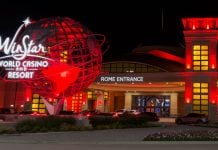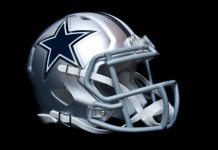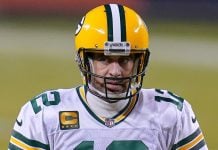Scott Longley of Clear Concise Media lends his thoughts to SBC Americas on how sponsorship deals are fast becoming an integral feature of the sports betting landscape in America.
The news that William Hill has signed a second US sports team sponsorship deal, this time with NHL franchise the New Jersey Devils is further proof of the speed of developments in the US regulated sports betting space.
The agreement includes a package of promotional tie-ins alongside the establishment of a sports lounge betting facility at the Devils’ Prudential Center stadium including radio spot sponsorship, advertised betting lines during games via in-arena signage and sponsorship of digital and social media channels.
It follows on from the news in late September that the UK-listed bookmaker was to be the new sponsor at the Las Vegas Golden Knights franchise with again in-arena branding and engagement via various advertising, digital and social platforms.
Others, of course, have also been busy. The MGM Report International and the NBA signed a landmark multi-year partnership deal in late July that will see the gaming giant use official NBA and WNBA data and branding, on a non-exclusive basis, across all its land-based and digital sports betting offerings.
Meanwhile, in what appears to be more of a left field move but certainly points to the potential for the likely proliferation of sponsorship deals, the Dallas Cowboys signed with the Chickasaw nation to become the first-ever official gaming partner with a tribal nation.
That deal will see the tribe’s WinStar Casino in neighboring Oklahoma become the official gaming partner to the Cowboys and is the first time a gaming facility has sponsored in the NFL
The financial details around all these deals remain under wraps but it is clear there an appetite for such tie-ups and that operators clearly sense the potential to leverage sport as a way to gain broader brand recognition.
Crispin Nieboer, director of corporate development and innovation at William Hill, certainly sees his company’s deals in that way. “With sponsorships, you have to be localized but as we reach scale, we will be looking at national deals,” he said.
A fan duel anyone?
The debate still very much ongoing in various states regarding the potential for what has variously been called a data right, an integrity fee or (the MLB’s preferred term) a royalty fee.
But already existent sponsorship deals arguably represent boots on the ground and indicate the extent to which the leagues can benefit from regulated sports betting in a way that just isn’t possible otherwise.
Such is the message from the recent American Gaming Association (AGA)/Nielsen Sports study that suggested the leagues stand to gain up to $4.2bn in terms of sponsorship and other fan engagement benefits from regulated sports betting.
“Sponsorship is already clearly a part of the dynamic of regulated US sports-betting as is the case in many other regulated gaming and betting territories,” says Laila Mintas, deputy president at Sportradar US.
The example from the English Premier League is as good a place to start as any. For the current 2018/18 season, nine out of the 20 English Premier League sides have gambling sponsors, a trend that has been in evidence for some years now.
Admittedly, a complicating factor is that of these nine are largely Asian-facing betting and gaming brands. But still according to recent research, every single top division side has at least one official betting partnership and with sleeve sponsorships also now allowed by the football authorities, the number of opportunities is much wider than a simple scan of the shirt fronts would suggest.
“I think all the activity in the UK points to the potential for greater fan engagement,” says Mintas. “Betting in this context is a mass-market activity and I’m sure that betting operators will be keen to sell that message through official tie-ups.”
As with other aspects of the regulated sports-betting space at present, this remains very much the land-grab phase where, as Harry Lang, marketing expert and the founder at the brand Architects consultancy, says “cash-rich/time-poor operators (clamour) to spend their marketing dollars in any way possible to simply generate brand noise above and beyond their competitors.”
We can expect more big announcements
Still, we can expect more big announcements as and when more states move to regulate sports betting. “Without knowing the intricacies of state-by-state advertising and sponsorship law over there, it’s hard to say how closely it’ll replicate the European football (sorry, soccer) model,” says Lang. “It’s likely that as soon as the legal sponsorship real estate is defined a series of bidding wars will determine who gets the cream off the top.”
A lot will come down to execution and both Mintas and Lang agree that the good sponsorship deals will have a long shelf life. “Good sports sponsorship deals are long-term relationships with neat strategic fit and perfect execution,” says Lang. “The short termers will either be operators who have overspent/ gone bust or those who have realised brand building is a long road to customer acquisition.”
“The chance is there to build, from fresh, new relationships between sports teams and betting operators that can benefit both sides,” says Mintas. “The successful partnerships will be looking far beyond the next season.”














